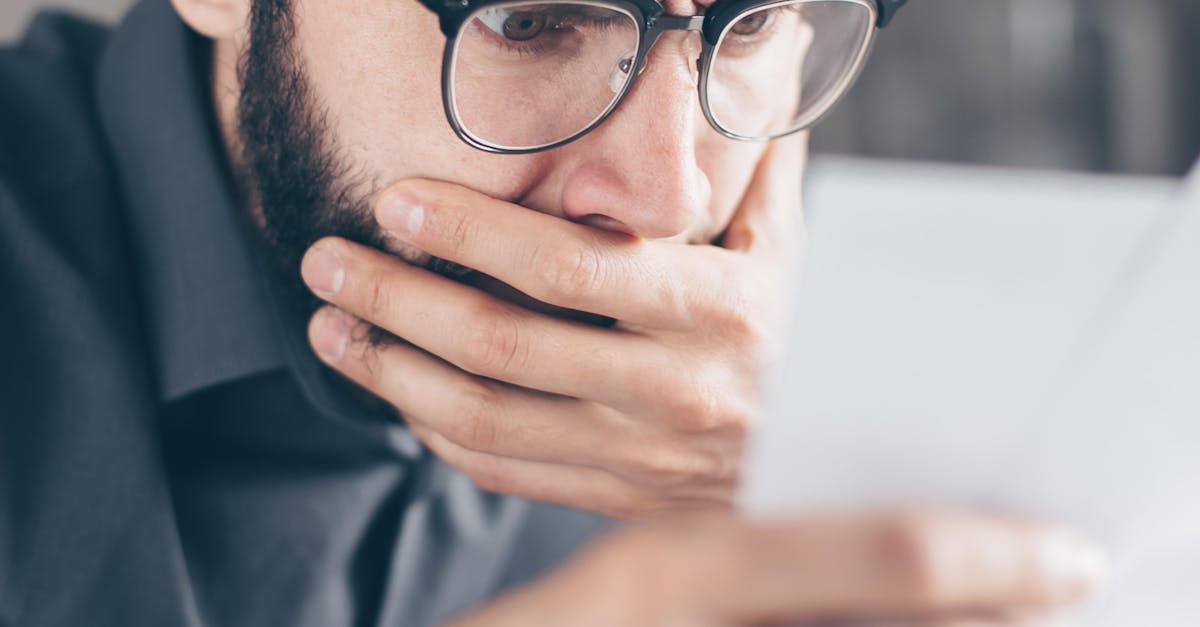
Debts Resulting from Fraud
Debts resulting from fraud can be particularly sticky to navigate after filing for bankruptcy. In cases where fraudulent activity has occurred, debts associated with these actions may not be discharged through the usual bankruptcy process. Court judgments can also be issued in cases of fraud, which may result in debts that linger even after other obligations have been absolved. Bankruptcy and Debt Restructuring are complex processes, and dealing with debts stemming from fraudulent behavior requires careful consideration and possibly additional legal assistance.
Individuals facing debts resulting from fraud should consult with a bankruptcy attorney to understand their options fully. It is crucial to address these debts with the appropriate legal guidance to avoid further complications down the road. Court judgments related to fraudulent actions can significantly impact an individual's financial standing, making it imperative to approach these situations with diligence and a clear understanding of the legal implications involved.
Court Judgments
Court judgments are legal decisions that determine the outcome of a lawsuit. In the context of bankruptcy, court judgments can have lasting financial implications for the individual. Even after filing for bankruptcy, certain types of debts may not be discharged, and court judgments fall into this category. If a court judgment is related to fraud or intentional wrongdoing, it is likely to survive the bankruptcy process. Such debts may continue to follow the individual even after declaring bankruptcy, creating ongoing financial challenges.
Bankruptcy and debt restructuring do not automatically erase court judgments from the individual's financial record. These judgments can result from various legal disputes, such as unpaid loans, contractual breaches, or property disputes. In most cases, court judgments are considered non-dischargeable debts in bankruptcy, meaning that the individual remains responsible for fulfilling the financial obligations outlined in the legal decision. Failure to address these court judgments can have serious consequences, including wage garnishment, asset seizure, or other legal actions taken by creditors to collect the outstanding debt.
Medical Bills
When individuals file for bankruptcy, they may wonder about the outstanding medical bills and how they will be affected. Medical bills can become a substantial burden for many, especially if they are facing financial challenges. Bankruptcy and debt restructuring can provide some relief by potentially discharging medical debts, allowing individuals to start fresh. However, not all medical debts may be eliminated, as there are certain criteria and regulations governing such discharges.
Medical bills accrued due to necessary treatments, surgeries, or consultations are typically considered eligible for discharge under bankruptcy. Hospitals and healthcare providers may be willing to work with individuals to settle the outstanding debts or establish payment plans. However, it is crucial to carefully review all medical bills and documentation to ensure accuracy and legitimacy. Engaging with healthcare providers and discussing options for payment can help alleviate the stress associated with medical debts and pave the way for a more stable financial future.
Hospitals
Hospitals often find themselves in the unfavorable position of extending medical services to individuals who are unable to settle their bills. This predicament arises when patients cannot afford out-of-pocket medical expenses, leading hospitals to incur financial losses. Bankruptcy and debt restructuring become viable options for individuals overwhelmed by medical bills. Thus, hospitals face the challenge of navigating the repercussions of unpaid medical services within the purview of bankruptcy laws.
In the aftermath of bankruptcy, hospitals are compelled to review their internal financial practices to mitigate losses stemming from unpaid medical bills. This may involve revising billing procedures, implementing stricter payment policies, or collaborating with debt collection agencies to recover outstanding debts. Consequently, hospitals must strike a delicate balance between providing essential medical services and safeguarding their financial stability in light of complex bankruptcy and debt restructuring dynamics.
Utility Bills
Utility bills are another common type of debt that can persist even after filing for bankruptcy. Electricity bills, in particular, are frequent culprits that individuals may struggle to pay off. Due to the essential nature of electricity in everyday life, these bills tend to be a priority even during financial hardships. Bankruptcy and debt restructuring may provide some relief for individuals facing overwhelming utility bills, but it is crucial to understand the specific nuances of each case.
In the realm of utility bills, it is essential to be aware of the potential consequences of past due payments. Failure to address these outstanding debts can lead to further financial strain and even legal actions. Understanding how utility bills are treated in bankruptcy and debt restructuring processes is vital for individuals seeking a fresh financial start.
Electricity
Electricity bills can be a common debt that individuals encounter after going through bankruptcy. While bankruptcy may discharge many types of debts, utility bills such as electricity remain a financial obligation that individuals must continue to pay. Falling behind on electricity bills post-bankruptcy can have negative consequences, including potential utility disconnection and further financial strain.
For individuals struggling to pay their electricity bills after bankruptcy, seeking assistance through debt restructuring options can be beneficial. Bankruptcy and debt restructuring programs can offer manageable payment plans and assistance in making past due payments for electricity bills. By engaging with these programs, individuals can work towards resolving their electricity debt while avoiding financial setbacks.
FAQS
What debts can follow me even after filing for bankruptcy?
Certain debts, such as those resulting from fraud, court judgments, medical bills, and utility bills, may still be required to be paid even after filing for bankruptcy.
Can debts related to fraudulent activities be discharged through bankruptcy?
Debts resulting from fraudulent activities are generally not dischargeable through bankruptcy, and you may still be responsible for repaying them.
How are court judgments treated in bankruptcy?
Court judgments are usually not discharged in bankruptcy, and you may still be required to satisfy them according to the terms set by the court.
Are medical bills discharged in bankruptcy?
While some medical bills may be discharged in bankruptcy, certain medical debts may still need to be repaid depending on the circumstances.
What happens to utility bills in bankruptcy?
Utility bills, such as those for electricity, may or may not be discharged in bankruptcy, depending on the specific regulations and requirements in place. It's essential to consult with a legal professional to understand your specific situation.






